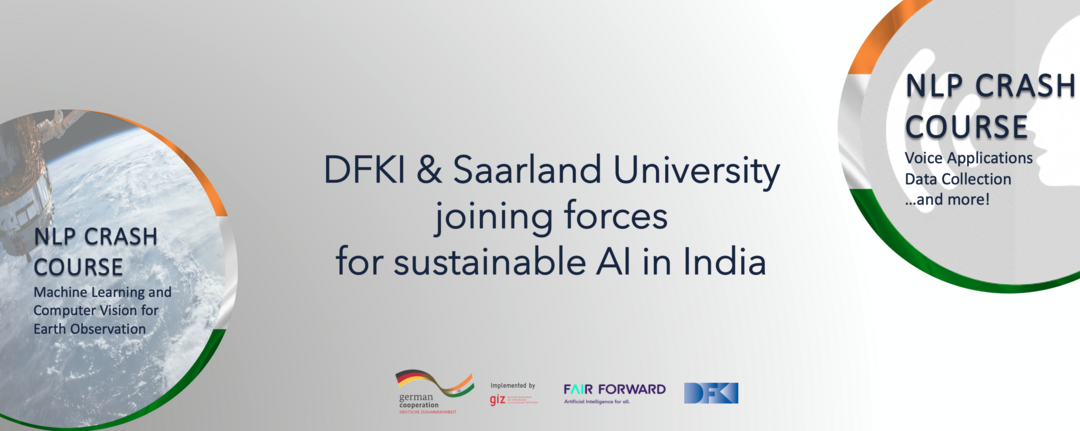Since the beginning of 2020, the DFKI research department "Multilinguality and Language Technologies" (MLT) has been supporting the German Society for International Cooperation GIZ (“Deutsche Gesellschaft für Internationale Zusammenarbeit”) on its mission towards a “thriving, ethical and sustainable AI-Industry” in Africa and Asia. More precisely, DFKI cooperates with the initiative "FAIR Forward - Artificial Intelligence for All", which pursues three important goals:
- To strengthen the local technical know-how on AI,
- To improve access to training data and technologies and
- To develop policy frameworks allowing for a responsible and ethical use of AI.
Already in 2020, DFKI organised several events in this context, including a workshop to support the development of an "AI Chatbot in Rwanda" and a webinar on "NLP in low-resourced languages" with a focus on African languages. This year, the MLT team travelled virtually from Africa to Asia: In cooperation with the DFKI research areas "Speech and Language Technology" (SLT) and "Augmented Vision" as well as selected experts from Saarland University, two crash courses took place in March 2021 in cooperation with GIZ India:
"Voice Applications, Data Collection... and more!" (01.03.2021)
With a focus on India, the crash course "Voice Applications, Data Collection... and more!" provided insights into the latest AI developments and machine learning in the field of dialogue systems (Question Answering Systems, Chatbots) and introduced the basics of speech recognition, speech synthesis and methods for collecting voice data. The participants represented two very different sectors: An Indian microfinance institution interested in dialogue systems for their customer care centre and a network for the exchange of climate information between scientists and farmers, where parts of the communication are to be automated. The speakers from the DFKI research labs MLT (Prof. Günter Neumann) and SLT (Jan Nehring) as well as from Saarland University (Prof. Dietrick Klakow, Lakshmi Bashyam, Prof. Bernd Möbius and Dr. Olga Petukhova) helped the participants to better understand the differences and complexity of dialogue systems and acoustic models and discussed possibilities and hurdles in developing suitable solutions for their particular use cases.
"Machine Learning and Computer Vision for Earth Observation" (04.03.2021)
The second crash course entitled "Machine Learning and Computer Vision for Earth Observation" was specifically focused on earth observation systems for agriculture and water management. The participants were from two projects: While one uses digital tools and technologies (e.g., remote sensing and GIS data) to improve climate-resilient water resource management, the other, together with the National Bank for Agriculture and Rural Development in India, focuses on mapping e.g., watersheds, land use and land cover.
The workshop explained how computers can extract information from images, videos or 3D sensors. When asked about concrete use cases in the context of earth observation and agriculture, speaker Dr. Jason Rambach (Augmented Vision, DFKI) mentioned that there were techniques to detect anomalies already at an early stage and thus prevent major disasters. After that, Dr. Ioannis Dontas (Aratos Group) presented solutions for earth observation, a precision farming system and remote monitoring of inland water quality. In an open discussion, the participants shared their questions about automatic tree or plantation detection, satellite sensors and the availability of high-resolution satellite data.
Although these two crash courses greatly differed in topic, they both pursued the same goal: They helped the participants to get an idea of the available AI solutions and to jointly narrow down how AI can be applied in an effective way for each of the projects.

